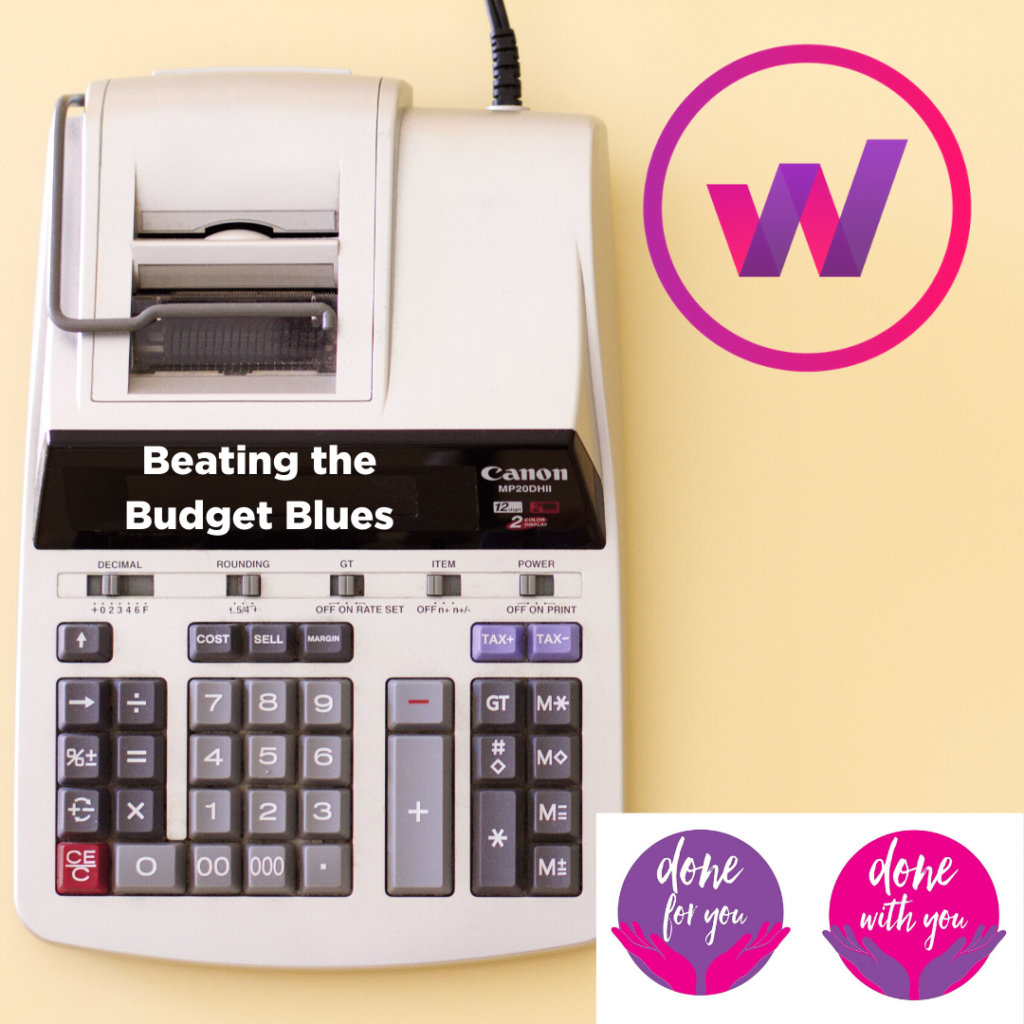Its July and we are halfway through 2020 – apart from the added complications on the effect of Covid-19 and lockdown – it has been a blur!
In my last post I started talking about starting to establish a relationship with your money. As a business owner (or even a sole proprietor) you need to know what is happening with your money so that you can plan. The first step was to face the facts and list your debts and the second step was to start listing your income and expenses. If your last 3 months have been anything like mine, you probably have not gotten to it as yet – it’s all a blur!
You have probably read this everywhere… but you need to have a budget as the first step to taking control of your business financial affairs. If you fail to plan, you are planning to fail!

Many people have been faced with a tough financial challenge thanks to lockdown and changes in how we do things thanks to Covid-19. But down does not have to mean out. And small changes in how we plan and spend money in our businesses can make a huge improvement.
Putting together a budget does not have to be daunting and overwhelming – it is a process of listing your expenses. In the early stages of building your budget it is a good idea to put down what your normal monthly expenses are. As your budget grows and evolves over time (it is never fixed!!) you will be able to over-budget for some expenses which will allow you to plan for future unexpected surprises. I can guarantee very few small business owners saw Covid-19 and its effects coming and planned adequately beforehand!
So why should your business have a budget and how can it benefit your business?
- A budget can make your business more efficient
- It can help to predict “slow months” and allow you to plan ahead of time
- Your budget helps you to stay in control of your business
- It helps you to see the point that your business becomes profitable
- A well maintained budget can help you make sure you are spending money in the right areas of your business
So where to start….
Step 1 is to look at your revenue or sales. If you have been in business for a while list your revenue or sales for 12 months. This will start to show possible seasonable patterns.
Step 2 is to look at costs directly related to the sales or cost of sales. It could be the cost of an item you are selling or the cost of providing a service.
Step 3 is to list your other costs. These can be costs such as rent, bank charges, salaries and wages, insurance, depreciation on any assets the business owns and debt repayments. Each business is unique and will have different expenses – but this should give you an idea.
Step 4 is to create your profit and loss statement. Here you will take your income less your cost of sales and less your other costs or expenses. This will show you if your business is profitable and if it is not profitable you will be able to see where you either need to trim expenses or possibly look at increasing your revenue to ensure that you can cover your costs.
Should you find yourself in a position where your business if profitable this will allow you to look at investing some of those funds into a surplus or emergency fund for slower months.

To really make your budget work it is important that you keep your financial affairs for your small business up to date and compare back to your budget on a monthly basis to ensure that your business is still on track financially.
Next month we will tackle financial recording and some basic management accounts, in the meantime we are here to help if you need make sure that you remain focused on your sphere of genius.
WAHM Workspace offers unique Done-with-you and Done-for-you packages to help with your business finances. The plan is to assist with YOU with focusing on your sphere of genius – your business. For more information click here – https://www.wahmworkspace.com/package/accounts-bookkeeping/
